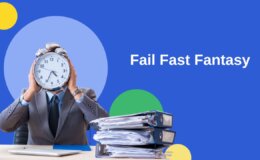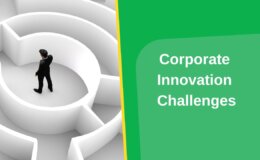Life is messy. It’s full of unexpected twists and turns, setbacks, and surprises. Uncertainty is abundant and it drives constant change. Finding stability and feeling like things are under control can be difficult. In the face of all this messiness, people often long for their past normal, in-balance life.
The rate of change and the level of uncertainty in the modern global economy is challenging for each of us. Taking control of uncertainty to ensure that we live productive lives is the fundamental challenge of our time.
What Does Normal Mean?
You’ll get ten different answers if you ask ten different people to describe normal. And that’s because “normal” is a subjective measure, and it’s different for everyone.
Some might say that a “normal” life is one that is free of problems, pain, and suffering. Everything is perfect and goes according to plan. Unfortunately, this version of normal doesn’t exist. Everyone experiences some form of hardship at some point in their lives.
Others might say that a “normal” life is simply one that is average. It’s nothing special or extraordinary, but it’s also not tragic or difficult. Unfortunately, there isn’t really such a thing as an average life since everyone’s experience is unique.
We each have our own ideas and expectations of what normal should be. The best way to think about “normal” may be to consider a range of possible outcomes that vary over time. At one end of the spectrum is “ideal” and at the other is “tragic.” At any given time, our lives fluctuate across this spectrum of normal.
What Is Equilibrium?

Equilibrium is a state of balance, where opposing forces are equal and in harmony. It’s a state where everything is in order, and nothing is out of place. It’s the point at which opposing forces are equal and there is no net change. In other words, it’s when things are in stasis.
It’s important to note that equilibrium is different from perfection. Equilibrium is a state of balance, where everything is in its rightful place. Perfection, on the other hand, is an unattainable state where everything is absolute and there is no room for improvement.
Each of us has a desired state of equilibrium. Your personal state of equilibrium will often be in conflict with the states of equilibrium of other people, creating tensions, conflict, and competition. Image the global interplay of billions of states of equilibrium, each impacting the others. The chaotic nature of markets results from the interplay of billions of states of equilibrium.
Obstacles Are In Our Way
Each of us hopes to live an abundant life by improving the outcomes of our efforts. The improved outcomes we desire are often delayed by obstacles that prevent us from making progress toward a better life. We seek products that deliver solutions to overcome these obstacles so that we can make progress toward higher levels of value in our lives.
When companies deliver products that overcome obstacles and serve unfulfilled needs, they fill value creation gaps. These gaps exist because the desired future state for a person is not achievable with currently available products. For example, people want to hire a product to keep them safe from the COVID virus. Before the vaccines were developed, there was not a product that could be hired to prevent sickness from the COVID virus. Pharmaceutical companies filled the value creation gap by developing and distributing vaccines.
Who Wants Disruption?
Any person that has an obstacle disrupting their desired equilibrium or that prevents them from achieving their desired outcomes wants disruption to the status quo. The desire for disruption creates opportunities to create new products that allow a person to make progress toward their desired future state.
For example, someone in a wheelchair wants a product that will allow them to walk. There is not currently a product available that can do this. But, if somebody invents a working exoskeleton, then this person can now make progress toward their desired future state. The person in the wheelchair is seeking disruptive change so they can have a better life.
Somebody that is overweight and cannot lose weight with currently available products also wants disruption. They want a product that will allow them to lose weight without having to diet or exercise. If somebody invents a pharmaceutical product that allows people to lose weight without having to diet or exercise, then this person can now make progress toward their desired future state.
In each of these examples, the person wants a product that fulfills unmet needs so that they can make progress toward their desired future state. The shift to a higher value state creates a new equilibrium for the customer.
Disruption Is Normal And Vital

Equilibrium is disrupted by innovators that create new value for customers. This is normal and it’s vital for long-term economic success and improvement.
In the past, society has benefited immensely from disruptions. For example, the Industrial Revolution led to mass production and increased standards of living for the global population. The Digital Revolution is currently underway and it’s transforming how we live, work, and play.
Some of the most influential companies today are those that have disrupted traditional businesses. Uber disrupted the taxi industry, Airbnb disrupted the hotel industry, and Amazon disrupted the retail industry. These companies have been able to succeed because they’ve provided better value to customers than their predecessors. Each of these companies satisfied customer unmet needs better that the existing competition.
What all of these companies have in common is that they were started by innovators who saw an opportunity to fulfill a value creation gap and deliver value to their customers.
When innovative products are offered to customers, they disrupt the equilibrium of the companies that currently offer products to those customers. As customers switch to better ways to overcome obstacles, they abandon the incumbent products.
This can lead to the decline of traditional businesses. For example, the taxi industry is in decline because Uber offered a better solution for customers. The hotel industry is in decline because Airbnb offered a better solution for customers. And the retail industry is in decline because Amazon offered a better solution for customers.
In each of these cases, the traditional businesses were disrupted by companies that offered better solutions for customers. Transitions to improved solutions are messy, and often disorderly. Tension, conflict, and competition between companies offering a new state of value and those incumbent companies benefiting from the current state of value often take years to resolve. Transitions can impact a large number of people who may resist the change.
Each new disruption ripples across the economic landscape creating a constant swell of change and reconfiguration of economic systems. Innovators realize this messiness is normal and it offers opportunities for impact.
For more information on why disruption is important check out our blog Disrupt or be Disrupted.
The Future Is Not Fixed

In an ever-changing world, it’s impossible to predict the future. The future is not fixed, it’s constantly being created by the actions of millions of people. The abundance of human creativity and the ongoing need to improve our lives means that the future will always be in flux, filled with advancements and life improvements.
Each disruption creates opportunities for innovators to fill new value creation gaps. The constant rebalancing of individual equilibrium generates unlimited pathways for a brighter future.
Feel Free To Build Your Abundant Future
Yes, messiness fills our modern lives. There are unending tides of change and shifting equilibriums. We each have a choice regarding how we participate in the development of the undetermined future. We can be passive and live in a world created by others, or we can directly participate in developing an improved future. Those people who maintain a fixed mindset experience the changing world from a perspective of scarcity and victimhood. Engaging a growth mindset and activities impacting the trajectory of change provides innovators with the agency to live abundant lives.
Theodore Roosevelt delivered the speech entitled “Citizenship in a Republic” at the Sorbonne in Paris on April 23, 1910. The speech is popularly known as “The Man in the Arena.” One paragraph of that speech is endearing to innovators and leaders:
“It is not the critic who counts; not the man who points out how the strong man stumbles or where the doer of deeds could have done them better. The credit belongs to the man who is actually in the arena, whose face is marred by dust and sweat and blood; who strives valiantly; who errs, who comes short again and again, because there is no effort without error and shortcoming; but who does actually strive to do the deeds; who knows the great enthusiasms, the great devotions; who spends himself in a worthy cause; who at the best knows, in the end, the triumph of high achievement, and who at the worst, if he fails, at least fails while daring greatly, so that his place shall never be with those cold and timid souls who neither know victory nor defeat.”
What will your arena be and how will you spend yourself for a worthy cause? Living a life of service as an innovator can be a life filled with abundance. Navigating the uncertainty of change will be difficult and tiring, but true leaders will endure the struggle to create the innovations that will enhance our progress to a better way of life.
See if you have a scarcity mindset and read our blog 15 Ways to Shift from a Scarcity Mindset to an Abundance Mindset and begin to build your Abundance Future.
Key Takeaways
- Taking Control of Uncertainty is the Fundamental Leadership Challenge of Our Time.
- Your future will either be built by you, or you will live in a future built by someone else.





